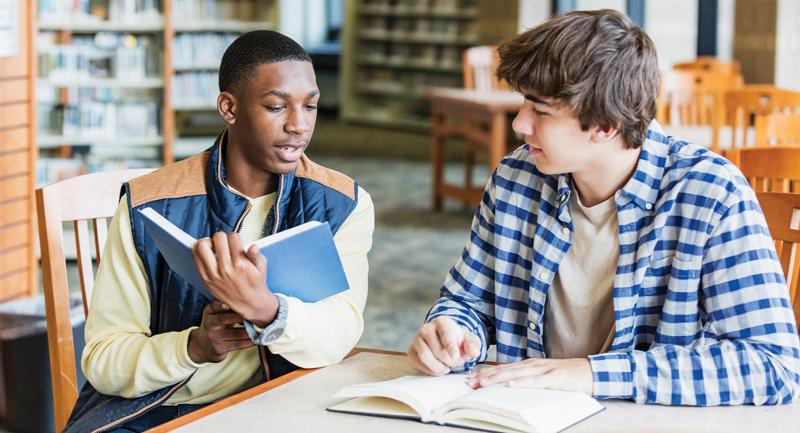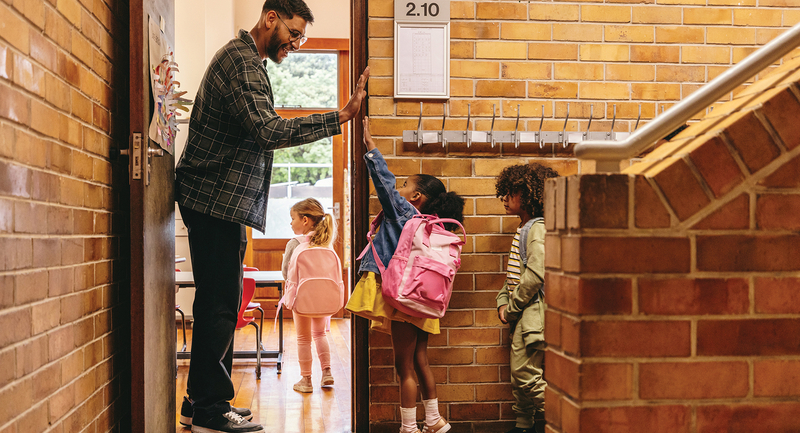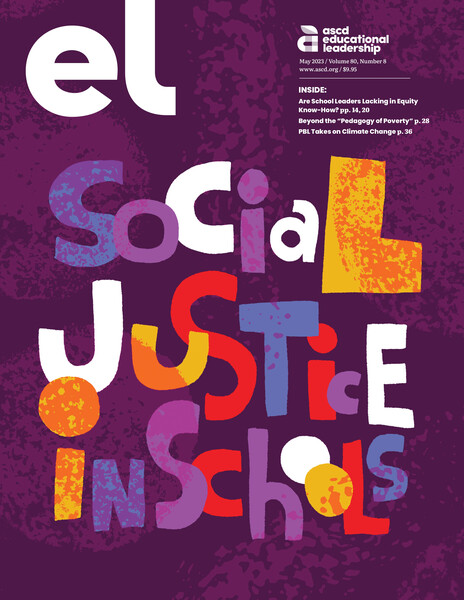Knowledge is power, the cliché goes. But what really is the purpose of knowledge, knowing, in the absence of action, doing? When it comes to social justice in schools, say equity advocates Paul Gorski and Katy Swalwell, awareness—full-stop— can veer into dangerous territory: It looks like "plain old complicity."
"If equity and justice are real goals," Gorski and Swalwell write, "the key questions for school leaders are not, How many racial justice books have we read? … but rather, Do we recognize how injustice operates around us? and What are we doing to eliminate it?"
"Awareness," they add, "does not magically translate into action."
Closing the knowing-doing gap is a key thread running throughout this issue of Educational Leadership. As several articles illustrate, both must happen for meaningful change to occur in schools. In the opening interview, Mark Anthony Gooden, a professor at Teachers College, Columbia University, discusses recommendations from a new Wallace Foundation report that calls for more robust training in culturally responsive school leadership—training that's embedded throughout a principal's career.
Leaders need to understand that "students are situated differently in schools and in society," says Gooden, and "that there are barriers and inherited conventions that create opportunity gaps throughout our systems." But they then need to take steps to "change current conditions and resources," to question long-held policies and practices that penalize underserved students—and hold firm against pushback.
This emphasis on action extends to students, too. A number of articles look at ways educators can help students build competencies to better analyze and address social justice issues. For example, different pieces describe how to empower students to exercise their voices; teach skills, like critical data literacy, so they can better understand the world and the social systems around them; and even use project-based learning to advance climate justice.
An uncompromising belief in all students' potential is a precursor to genuine action.
For educators, an uncompromising belief in all students' potential is a precursor to genuine action. To move from a "pedagogy of poverty" to a "pedagogy of plenty," Carol Ann Tomlinson explains, schools have to "teach up"—to plan curriculum and instruction for students with "high ceilings" and provide the scaffolding to get them there.
The need for high expectations and high support is echoed by Suzanne Stolz, assistant professor at the University of San Diego. In "Building an Anti-Ableist Pedagogy," Stolz says society has been trained to view disability in deficit terms, which even the most skilled educators can carry into their teaching practice. Stolz challenges educators to examine their own biases in addition to the hidden curriculum in schools—the subtle messages conveyed through everyday practices that might, for example, devalue interdependence and help-seeking.
Indeed, to close the knowing-doing gap, educators (and non-educators alike) must align their values and actions. As Erica Buchanan-Rivera, a district equity and inclusion director, notes, DEI statements on websites without the teeth to back them up serve as little more than empty platitudes. To ensure values and actions mirror one another, Buchanan-Rivera offers several reflection questions that can help educators take inventory of their current practice, determining how they show up (or don't) for students and colleagues—and how they are contributing to students' ability to shape their world in positive ways.
Aristotle once said, "the purpose of knowledge is action, not knowledge." He also said, "We are what we repeatedly do." So, what are you willing to do in service of social justice?







